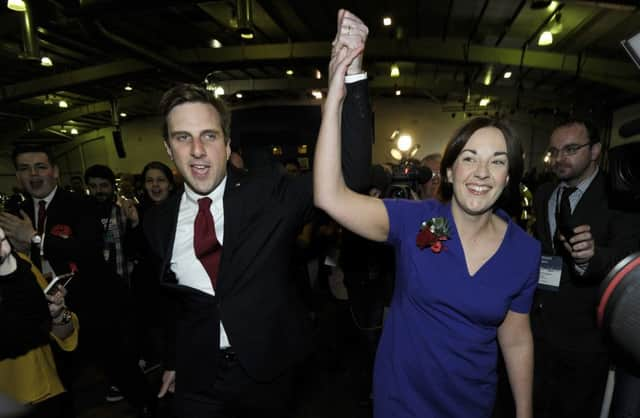Lesley Riddoch: SNP win shows Labour won the battle but lost the war


Actually, many independent-minded Yes voters will be quite happy with a constitutionally-fixated opposition. As Oscar Wilde said, it’s better to be talked about than not talked about. And when Labour was the “go to” opposition party, Scotland’s constitutional future wasn’t getting a look-in. At least now we have two feisty female leaders who aren’t walking on eggshells when they discuss independence and the Union.
Likewise, a minority SNP government will suit many folk. Like a journalist with a deadline, the SNP has always been leaner, more purposeful and effective when it’s had to reach common cause with like-minded people outside the party and work for every vote instead of resting on its laurels. Indeed, if Nicola Sturgeon’s enthusiasm for consensus politics is real, the next parliament could take Scottish democracy to a whole new level, and refresh parliamentary practices and voting systems that seemed cutting edge in 1999 but now look decidedly dated.
Advertisement
Hide AdAdvertisement
Hide AdIn fact, despite over-hyped expectations, the SNP has done very well to win a third consecutive term – albeit a minority one – in a parliament whose voting system was designed to make outright majorities virtually impossible. Unquestionably the biggest losers are Scottish Labour – squeezed by a more progressive-sounding SNP and a more muscular-looking set of Unionists in the Scottish Conservative Party. That situation did not happen overnight, and it’s hard to see what Scottish Labour can now do to retrieve it.
It now seems clear that Scottish Labour won the battle but lost the war in 2014, with negative messages and scaremongering during the indyref and the most limited devolution offer of all the political parties thereafter.
Indeed, it seems the pro-devolution parties have been punished for failing to represent the 37 per cent of Scots who wanted the more meaty, near-federal Scottish parliament Gordon Brown promised but failed to deliver.
Labour and the Lib Dems have remained stubbornly behind the curve of opinion among voters they purported to represent. On Thursday night they were effectively given their jotters – with a few noble exceptions – by an electorate profoundly tired of their politics of denial.
Indeed, in the fetid atmosphere of BBC Scotland’s spin room, some Conservatives suggested David Cameron should hold a second referendum as quickly as possible, offering a federal tax-raising parliament, not the status quo, as the alternative to independence. Such decisive action looks unlikely since the Tory party is preoccupied with and torn apart by the referendum on European Union membership.
Perhaps Nicola Sturgeon is also relieved because the Tory resurgence and minority government makes a quick sprint towards indyref2 less likely – and she has always preferred the strategy of building support towards 60 per cent before trying again.
Meanwhile, she and all Scotland’s political leaders have an unexpectedly complex situation to deal with right now: the re-emergence of a rainbow Scottish parliament, which must decide how to use new powers from Westminster. A relatively lacklustre election campaign has delivered an unpredictable and enlivening result.